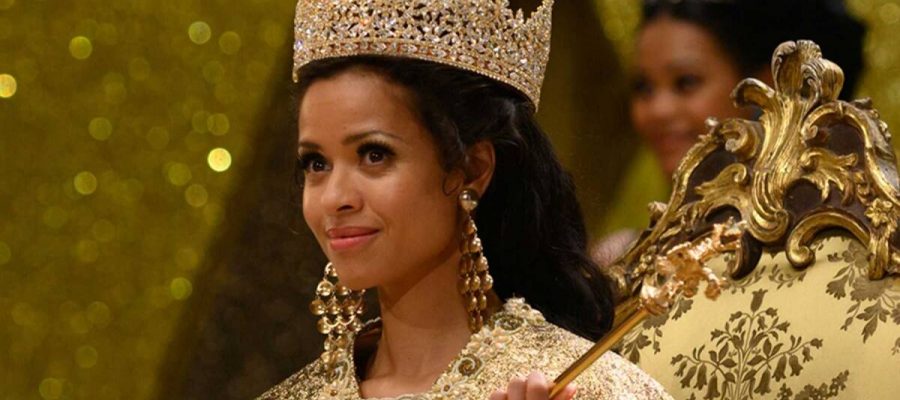Post-MeToo, Misbehaviour seems a dash too polite, and a little too hesitant, in asking to change the world.
Misbehaviour cast: Keira Knightley, Greg Kinnear, Jessie Buckley, Rhys Ifans, Keeley Hawes, Lesley Manville, Gugu Mbatha-Raw
Misbehaviour director: Philippa Lowthorpe
Misbehaviour rating: 3.5 stars
What could be farther apart than a beauty contest and a group of women seeking to stir a movement for women’s liberation? But, if a world separates them, it is a world that most womankind inhabits, on a daily basis, finding (if they are lucky) the middle ground that works best for them.
Misbehaviour’s accomplishment is its acknowledgement of this middle ground, at a time when all we have today are polarised extremes. It is hard not to get shocked as the women contesting for the Miss World crown are literally trotted out, noted keenly for their curves, the size of their fronts and derrieres and the purity of their “untouched” looks, and patted around their chests to rule out any “padding”. However, Misbehaviour humanises their ambitions, down to the tears in their eyes at the objectification, as much as it does the women at the other end of the spectrum who are “reconciled to poky domesticity”.
The setting is 1970, when America is sending out Bob Hope (Kinnear) and Miss Worlds to Vietnam as a diversion for its weary soldiers, South Africa is fighting off clamour over Apartheid, Eric and Julia Morley (Ifans, Hawes) are planning their annual Miss World extravaganza, and a divorced, single mother, living with a male partner, is hoping to get into University College London to study history.
The last one would be Sally (Knightley), who sees how each of the above descriptions for her are received by her almost-sneering interviewers at her college admission. That is one of the reasons Sally is an enthusiastic participant at meetings for women’s liberation, where one day she runs into Jo (Buckley). Unlike Sally who is hoping that getting “a seat on the table” in male establishments like universities was the way for women to claim that space, Jo believes in breaking open the doors that keep them out. The two are drawn to each other, and slowly combine forces against the Miss World pageant and all it symbolises.
One of the first people Sally has to convince about her fight is her own mother, who reminds her that it’s rather convenient for Sally to go about changing the world knowing that her mother is around to look after her daughter.
Meanwhile, the Morleys, cognizant of retaining the Miss World show’s image of being a “family entertainer” and to keep any hint of politics out, take refuge in political correctness. That essentially means having two contestants from South Africa, Black and White, called Miss Africa South and Miss South Africa respectively. Yes, that really did happen.
As the first representative from her little Caribbean country, Grenada, Jennifer (Mbuthu-Raw) is drawn to Miss Africa South and, in a touching little scene, both comment on the incongruity of finding themselves amidst women who are all fair and all blonde, on the unlikelihood of either of them getting the crown, and on the importance a win holds for them.
Based on true events that came to pass that momentous Miss World night, Misbehaviour is ultimately about impossible dreams and the improbable leaps of faith that often make them possible. It may seem like we have come a long way, with 2019 seeing the big beauty crowns all go to women of colour, but the fact is that it’s still women who are on show in these pageants, the standards of beauty have hardly budged from 1970, and that one famous organiser, Donald Trump, served for four years as the most powerful man in the world.
Post-MeToo, Misbehaviour also seems a dash too polite, and a little too hesitant, in asking to change the world. But in making its warriors women of flesh and blood, women who are mothers and daughters, women who are fighters and followers, women who are “pleasing” and “powerful”, it does deliver their central message: “We are not beautiful, we are not ugly, we are angry.”
Source: Read Full Article







